Cash games are the purest form of poker. What’s so good about playing cash?
– You can start and stop when you please.
– Play whichever stakes you feel most comfortable with.
– Variance is at its lowest.
– The best way to develop your poker skills.
The sheer convenience and flexibility offered by online cash games can’t be ignored. Play a long or short session, wherever and whenever you please.
There’s another special perk of playing cash games on Grosvenor Poker online—you can play on ‘Anonymous’ tables:
– Seating is random, and player names are simply shown as Player 1, Player 2 and so on. Only you can see your own alias and avatar.
– This is great way to play without the fear of being targeted by pro players.
– You don’t have to worry that opponents have a library of notes or statistics on you.
Game Selection
Your first decision is which table to sit at.
As well as regular cash tables, Grosvenor offer ‘Blaze’ which enables you to play more hands per minute. Two features distinguish Blaze poker from regular poker
1.Each hand there is a new table draw, and you are seated at random with a number of people from the player pool at those stakes.
2.There’s a ‘Quick-Fold’ button. If you are dealt a bad hand, you don’t have to wait until it’s your turn to act—just hit Quick Fold, and you’ll be immediately transported to a new table with a fresh hand.
It’s fast and fun, but also there’s no excuse for impatience. Be disciplined and don’t play weak holdings out of position—it won’t be long before you find a better hand.
Most players will want to start with regular tables, where you stay in the same seat until you choose to leave the table. This is also the best way to improve your skills, as you can develop reads on your table-mates, pay attention to their playing tendencies and weaknesses, and figure out what adjustments to make versus each individual player.
Within the Hold’em tab, you will want to use the filters to show Regular and/or Anonymous Tables. Take heed of the orange icons in the left column which denote the Blaze tables.
Note the Size column indicating the number of seats per table. Most players will want to avoid heads-up (2-seat) tables until they are more experienced.
Stakes
There are several considerations when choosing which stakes to play. Whether you grind professionally or for fun, most people want to make as much money as possible. Professionals often talk about ‘hourly rate’, and every player will have a sweet spot—the stakes where they are most profitable. To maximise your win rate, you need to find your own level.
Broadly speaking, the higher you play, the harder the games will get—but it’s not a direct correlation. And just because you can beat €1/€2 games, doesn’t mean you might not make more money playing €0.50/€1.
Here’s another consideration. Let’s say you make 3 BBs/hour playing 25c/50c (€1.50/hour), but 6.5 BBs/hour playing 10c/20c (€1.30/hour). Even though your hourly rate is marginally higher when you play the bigger game, your variance will be significantly lower in the softer game. This is a victory in itself, as you’ll book more winning sessions, and may enjoy the game more. Another factor is that you might find it easier to multi-table the 10c/20c games.
If you’re not sure which cash games you should play, the best strategy is simply to start small and work your way up.
PRO TIP: If you’re struggling with beating the bad players at one level, don’t buy into the myth that you’ll get better results by playing for higher stakes (where they might ‘respect your raises’!)
This is a trap. Your win rate vs bad players should be higher than your win rate vs better players. It’s that simple. If this is not the case, you just haven’t worked out how to beat the bad players.
There are very specific adjustments to make versus the various ‘fish’ player types—so actively try to figure out how you’re going to beat them.
EXAMPLE: you are at a loose table where nobody respects raises, even those from early position. In this case, don’t raise any weak hands from out of position. Only open the strongest value hands from EP—holdings likely to dominate the hands they’re calling you with.
If you find it frustrating that you can’t bluff certain players, remember it’s a good thing when you find someone who lacks a fold button. You just have to be more patient waiting for value hands with which to crush them.
Bankroll Management
The low variance of cash games makes them great for players on a limited bankroll. By contrast, tournaments have the most savage variance—it’s not at all unusual for tournament grinders to experience downswings of 100 buy-ins or more.
Online it’s possible to play for much smaller stakes than in casinos, so you can get heaps of cash game experience with very little risk.
There are different schools of thought on money management guidelines, but as an absolute bare minimum you should have a bankroll of 20 buy-ins.
EXAMPLE: usually you buy into a cash game with 100 big blinds, so to play 5c/10c you should have a minimum poker bankroll of 20 buy-ins, which is 20 x €10 = €200. More is better though!
Variance increases in tougher games, so it may be wise to allow 50 or more buy-ins at higher stakes.
Comfort Zone
A final word on picking your stakes. It’s extremely important to play within your comfort zone.
There’s a lot of random in poker, and it goes without saying that you should ‘keep it safe’—play with money you can easily afford to lose. However I would go further and emphasise you should play with money you’re very comfortable losing. To play something approaching optimal poker, you mustn’t be afraid of taking a calculated risk for your whole stack.
Sometimes, the best play—the move that will make you the most money in the long-term—is to push all-in on the river, or to call a shove on the river, even though there is a degree of uncertainty whether you will win the hand. Every successful poker player must ultimately embrace this. This is actually a common weakness in multi-table tournament players: they can be overly fearful for their ‘tournament lives’.
Leave Your Ego
A crucial point about game selection is… never EVER sit at a bad table! If a game seems tough, just stand up from the table. This is the whole point of cash games.
Be particularly mindful of your seat. Naturally, competent regulars will be drawn to any decent game, but if one of these guys is on your direct left and giving you a hard time, leave your ego at the door and leave the table.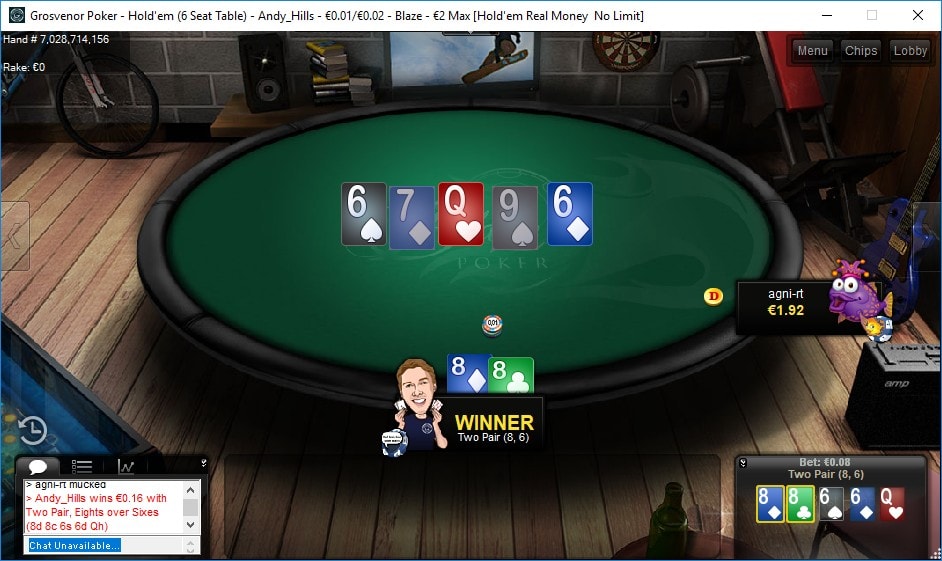
Mental Game
I’ve dealt with the main areas of game selection. A related topic is when to quit.
In principle, if you’re at a great table, you will want to stay there until the game dries up. There should be no reason to end your session just to ‘lock a win’—poker is a long game; it means nothing to book a winning session. However there can be good reasons to leave a decent game, for example if you’re tired, or for whatever reason you’re not playing your A-game.
Tilt control is arguably more important in cash games than in other forms of poker. Your losses in a poker tournament or sit’n’go are limited; however the ‘reload’ button on a cash table may tempt some players to chase their losses when they’re in a bad state of mind.
Nobody plays perfectly 100% of the time. The great thing about cash games is you can stand up from the table any time you please. So be honest with yourself—if you’re tilted, quit all your games immediately. You’ll be much more likely to recoup your losses after a break, with a clear head. Poker’s not going away!
Good luck at the tables.
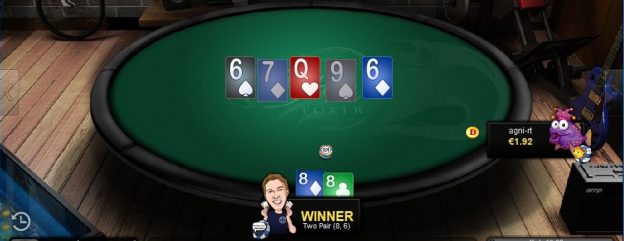
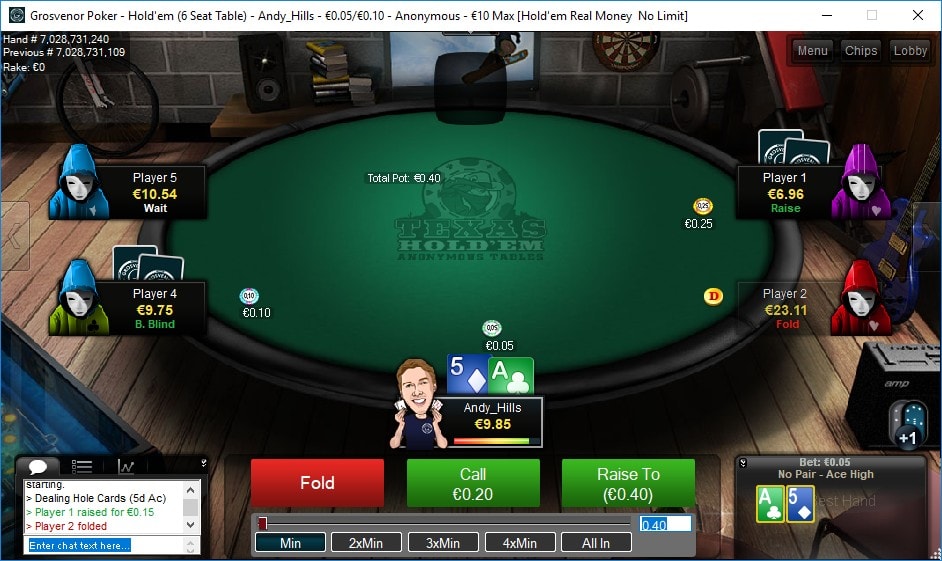
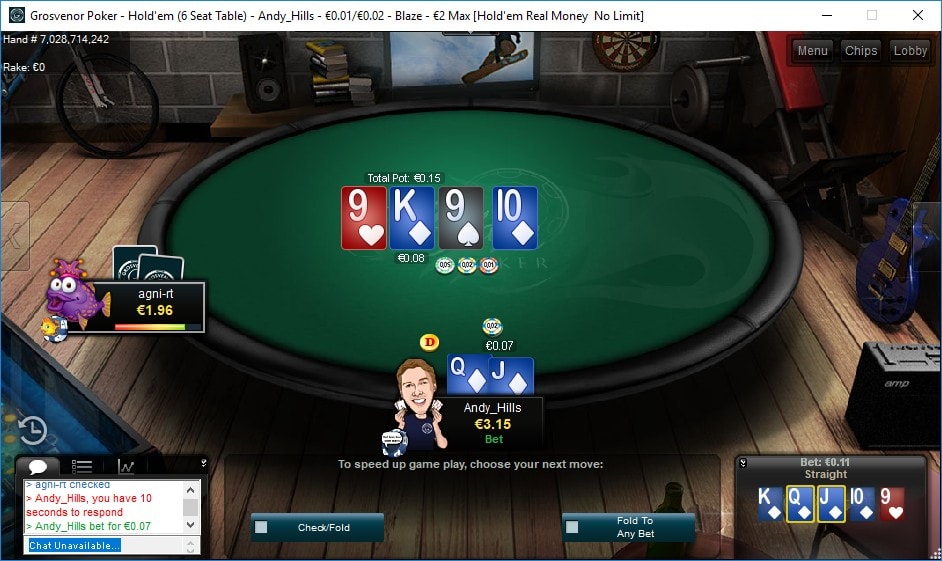
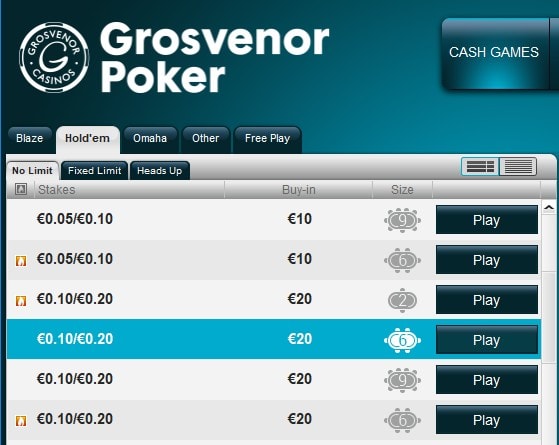

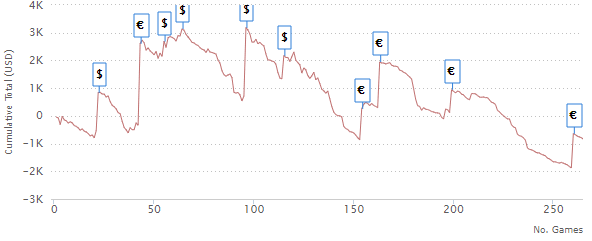
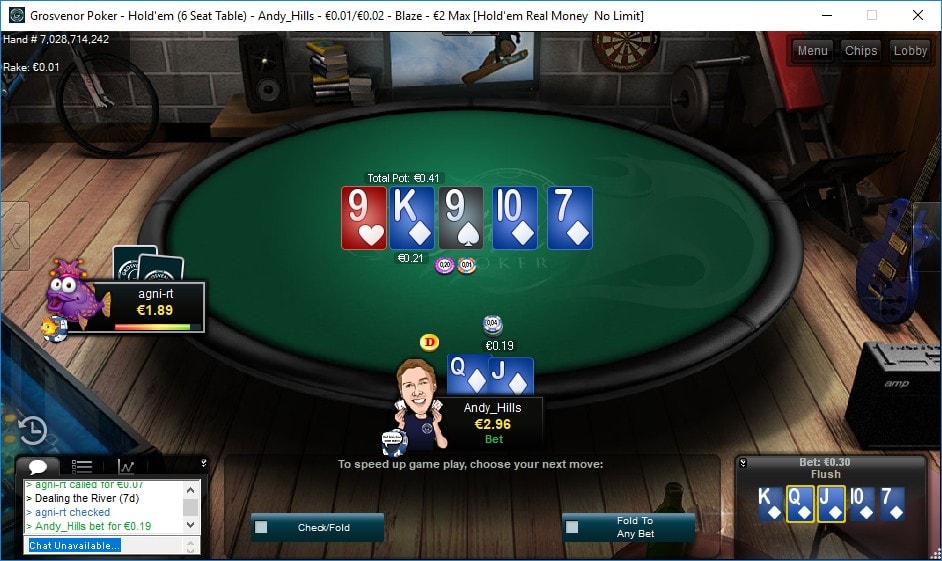
Leave a Reply